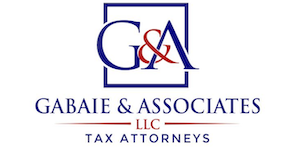Receiving a letter from the Internal Revenue Service (IRS) can be very stressful. There may be a number of reasons why the IRS may send a taxpayer or business a letter or notice, including needing additional information, notice of an audit, or an unpaid tax bill. If you received a notice in the mail from the IRS, contact Juda Gabaie at Gabaie & Associates, LLC to understand your rights and options.
Notices and Letters Sent by the IRS
The IRS may notify taxpayers and businesses about tax issues through sending a notice or letter for the following reasons:
- Balance due
- Taxpayer is due a larger or smaller refund
- IRS has a question about a tax return
- IRS needs to verify the taxpayer's identity
- IRS needs additional information
- Change to the taxpayer's return
- Delay in processing the return
- Notice of intent to levy
- Notice of underreported income
- Seize assets
- TFRP Violation
IRS Letters Sent to Taxpayers and Businesses
Some of the common IRS letters and notices sent to taxpayers and businesses in Maryland may include:
- CP 504 – Final Notice & IRS Intends to Levy – Balance Due
- CP 523 – Intent to Terminate Your Installment Agreement & Seize Your Assets
- CP 90 – Intent to Seize Assets and Notice of Your Right to a Hearing
- LT 1058 – Final Notice of Intent to Levy and Notice of Your Right to Hearing
- LT 11 – Intent to Seize Your Property or Rights to Property
- CP 508c – Possible Revocation or Denial of Passport
- CP 2000 – Notice of Underreported Income
- IRS Letter 1153 & Form 2751: Proposed Assessment of the Trust Fund Recovery Penalty)
After Receiving a Letter From the IRS
After getting a letter from the IRS, you can contact an experienced tax attorney to understand your rights and options. Your tax attorney can also respond to the IRS on your behalf and may be able to quickly and easily clear up any tax issues.
The IRS letter or notice should also provide information about how to respond, your rights, and options. The taxpayer may be able to respond by filling out or signing any forms and returning them to the IRS. The requested action may also be to include additional information to substantiate a deduction or credit. The taxpayer can also call the IRS with any questions.
Did You Get a Phone Call from the IRS?
Many people are getting phone calls from someone claiming to be from the IRS. However, these are generally scam phone calls and are NOT the IRS. The majority of contact with the IRS will first be done through the mail or in-person.
The IRS has even issued a guidance on what to do when you receive a phone call from someone claiming to be from the IRS, including the following things that IRS employees will never do.
- Call demanding an immediate payment. The IRS won't call taxpayers if they owe taxes without first sending a bill in the mail.
- Demand payment without allowing taxpayers to question or appeal the amount owed.
- Demand that taxpayers pay their taxes in a specific way, such as with a prepaid debit card.
- Ask for credit or debit card numbers over the phone.
- Threaten to contact local police or similar agencies to arrest taxpayers for non-payment of taxes.
- Threaten legal action, such as a lawsuit.
Contact Your Maryland Tax Attorney
After getting a letter or notice from the IRS, you may have a number of questions about your rights and what you need to do. An experienced Maryland tax attorney can answer your questions and help you avoid any unnecessary tax penalties. Contact Juda Gabaie at Gabaie & Associates, LLC online for a free consultation or call (410) 862-2198 for help with your IRS or Maryland tax issues.
